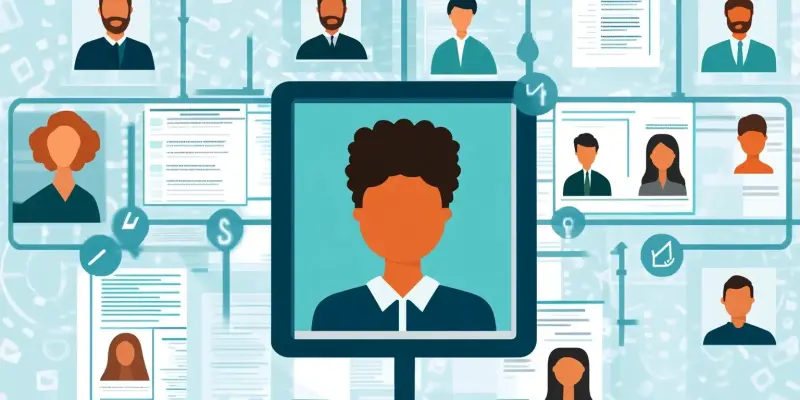In an era where artificial intelligence (AI) is rapidly integrating into various business operations, maintaining robust data privacy practices has become more crucial than ever. The digitization of business operations has necessitated advanced techniques to protect the massive amounts of sensitive employee data managed by Human Resources (HR) departments. As technology continues to evolve, ensuring the privacy and security of this data is critical to preventing financial losses, reputational damage, legal issues, and a significant erosion of trust. HR departments must navigate complex challenges to safeguard data while leveraging AI to optimize their processes.
The Dual Role of AI in HR
Enhancing HR Processes
David Irecki, CTO for APJ at Boomi, highlights both the opportunities and challenges that AI presents to HR departments. On one hand, AI offers tools that can significantly enhance HR procedures, from recruiting and onboarding to performance evaluations and employee engagement. These enhancements can streamline operations, improve accuracy in decision-making, and provide valuable insights drawn from data analytics.
For example, AI-driven tools can analyze resumes and applications efficiently, identifying the best-fit candidates for specific roles while eliminating human biases that may influence hiring decisions. Additionally, AI can support employee performance reviews by providing objective data collected from various sources, thereby fostering a more equitable assessment process. However, as HR departments integrate these AI tools, it’s essential to recognize the potential risks and ethical concerns they bring.
The Importance of Transparency
While AI-driven systems offer numerous benefits, Irecki stresses the critical need for transparency in AI operations to prevent data misuse and perpetuation of biases. Organizations must obtain clear permissions from employees before utilizing their data and ensure this information is encrypted to protect privacy. Moreover, companies should provide easy opt-out options, allowing employees to retain control over their personal data.
To mitigate risks, human oversight is necessary to manage and monitor AI processes, ensuring that they align with ethical standards and legal requirements. Transparent AI operations include explaining how algorithms work and their data usage, fostering trust among employees. Addressing these ethical considerations can help organizations use AI responsibly, avoiding potential pitfalls that may arise from unchecked automation.
A Holistic Approach to Data Privacy
Integrating People, Processes, and Technology
Arun Kumar, Regional Director for APAC at ManageEngine, advocates for a comprehensive strategy that integrates people, processes, and technology to protect sensitive data effectively. Adopting advanced technological solutions alone is not sufficient; it is imperative to educate employees about data privacy and foster a culture of shared responsibility. Workers need to understand the importance of data security and their role in maintaining it.
Part of this holistic approach includes implementing robust security frameworks like SIEM (Security Information and Event Management) systems. These technologies leverage AI to proactively detect and manage potential threats, enabling real-time responses to security incidents. By combining these advanced systems with employee training, organizations can create a layered defense strategy that enhances their cybersecurity posture.
Building a Culture of Trust
Prioritizing data privacy is not just about compliance; it is a means to empower organizations to maintain control over their data and protect individuals’ rights. Kumar emphasizes that fostering a culture of trust and ethical data handling within the organization is vital. Employees must feel confident that their personal information is handled with the utmost care and transparency.
Establishing a trust-based culture requires consistent communication about data privacy policies and practices, as well as demonstrating a commitment to ethical behavior. By nurturing this sense of trust, HR departments can build a thriving organization where employees feel secure and respected. Protecting data privacy aligns with broader organizational goals and contributes to a positive workplace environment.
The Imperative for HR Leaders
Balancing Technology and Ethics
The integration of AI into HR functions necessitates a balanced approach that weighs technological advancements against ethical considerations. HR leaders must ensure that the implementation of AI tools respects employee privacy and complies with regulatory standards. This balance is crucial to building trust and safeguarding sensitive information.
One of the significant challenges lies in maintaining this balance while maximizing the benefits that AI technologies bring. By focusing on transparency, obtaining clear permissions, and maintaining human oversight, HR departments can navigate these challenges effectively. This approach helps prevent potential biases in AI-driven processes and ensures that technology serves as an enabler rather than a disruptor.
A Comprehensive Strategy for Data Privacy
In a time where artificial intelligence (AI) is quickly becoming integral to numerous business functions, maintaining strong data privacy standards is more important than ever. As business operations go digital, Human Resources (HR) departments are handling vast amounts of sensitive employee information, necessitating advanced methods to ensure data protection. With ongoing technological advancements, securing this data is essential to preventing financial losses, reputational harm, legal troubles, and a significant decline in trust. HR teams face a complex challenge: they must safeguard data while utilizing AI to streamline their processes and improve efficiency. Effective data privacy practices not only protect organizations from potential threats but also help maintain the trust of employees and stakeholders. As AI continues to innovate, the delicate balance between leveraging advanced technology and maintaining strict data privacy must be achieved to optimize operations without compromising security.

